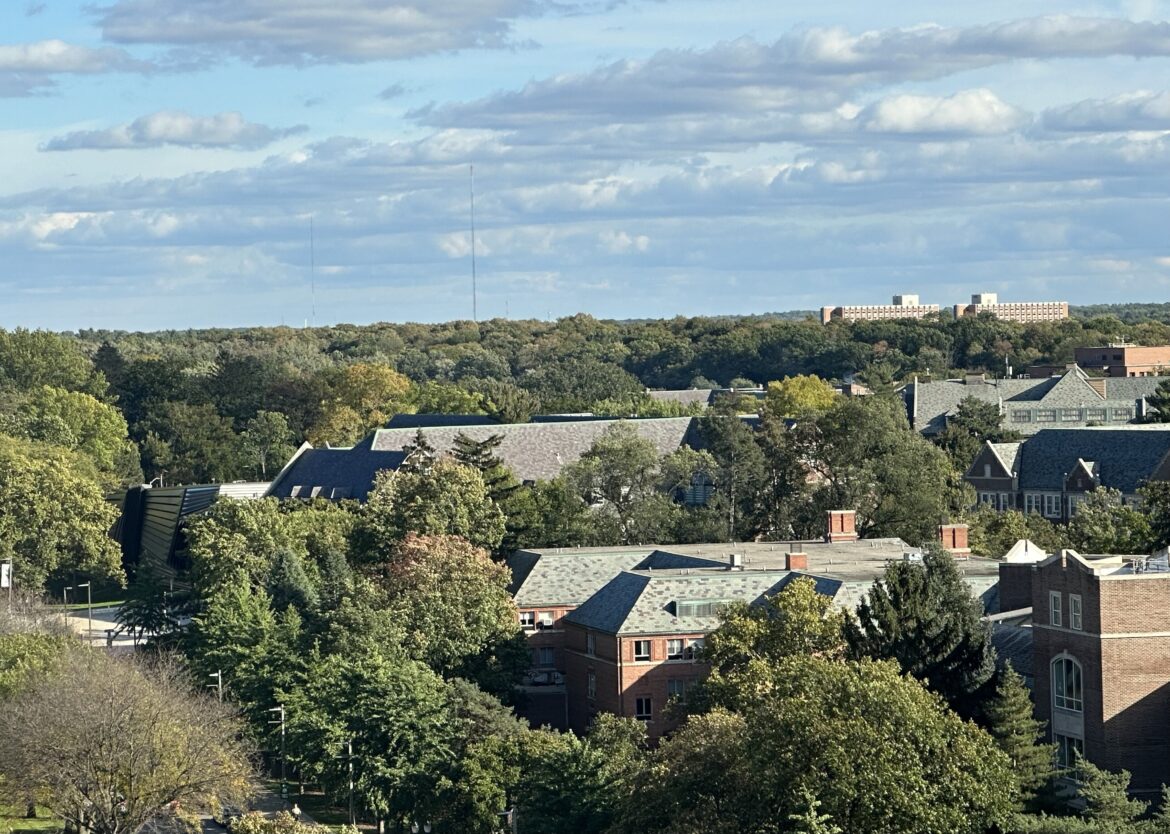As incoming Spartans arrived to campus Aug. 22, to start the newest chapter of their lives, one thing stood out to several students and their families when they were lugging in their possessions:
It was hot.
“It was hot outside, but it almost felt even hotter inside,” said Charlie Moeder, a freshman living in Wonders Hall.
Moeder underestimated the impact of having no air conditioning. He had always lived with it but assumed that the building would stay remotely cool without any central air. He admitted rather quickly that he was wrong about that.
Bethany Balks, the associate director for communications for MSU Residence Education and Housing Services, said the university is aware of the problem.
“At move in time, especially during the hotter ones, we hear from people that wish we had air conditioning in the rooms and in more spaces on campus,” Balks said. “We hear early, then it usually slows down in two to three weeks.”
MSU has no air conditioning in most of their dorms but have portable air conditioners available for residents that have confirmed medical needs requiring air conditioning, Balks said.
What if you need AC
Residents can get air conditioners through REHS by working “with a treatment provider to confirm that they have a medical need” or they can “work directly with RCPD,” said Balks. It costs $150 per year for students who get the unit through REHS but is free through RCPD.
“It is really nice to have it for a month or so, but then we will have it turned off,” said Josh Mason, who brought a portable unit to his dorm in Wonders Hall. “My friends always come into my room for the first few weeks of school because they say that their rooms are unbearably hot, so that does make me appreciate that I have it.”
Air conditioning is a basic need for people in the southern United States, but the real question is whether it is necessary in a state like Michigan. Balks and her team have thought vastly about this debate.
Although it may be hot for a few weeks out of the year, “we usually have to turn the heat on during nights in late September,” Balks said.
It is unfortunate that dorms may be very hot for a few days, but the cost of adding central cooling to the buildings that are quite old may not outweigh the positives, according to Balks.
“Our buildings don’t have air vents,” Balks said. “Because of this, the cost of bringing in central air conditioning would be a significant investment.”
Moeder mentioned that the forecast seems to be cooling off and there shouldn’t be many more nights of trying to sleep in his 78 degree room.
MSU does have air conditioning in a number of its buildings and there are cooling centers in each neighborhood for students to take advantage of, especially when a heat wave may arrive.
Future outlook
One fear with global warming is that temperatures will keep rising as the years go on, and there could be a time when air conditioning is a need instead of a want. According to World Weather Info, East Lansing had zero days with highs above 82 degrees in Sept. of 2020 and 2021.
There was one 83 degree day in 2021, but as of September 9, there have already been four in 2023.
